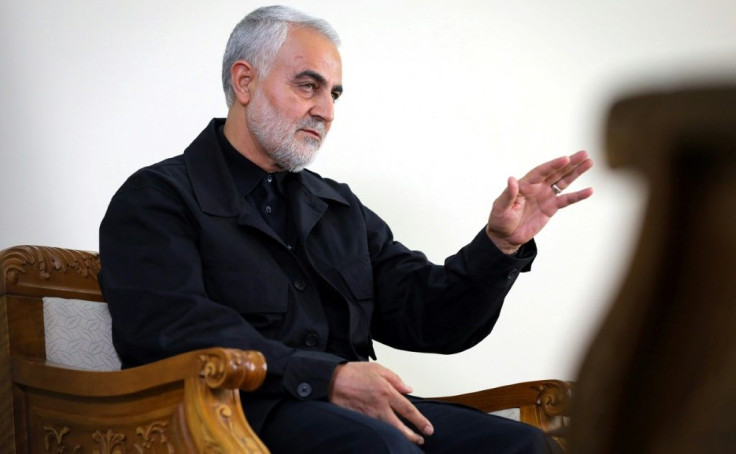Why Did The Trump Administration Choose Now To Strike Iran? Understanding The Timing Of Killing A Military Commander

KEY POINTS
- Democratic lawmakers have criticized Trump's lack of legal justification for the killing of Iranian commander Qassem Soleimani and questioned the timing of the strike
- Lawmakers worry about whether the strike could cause a war with Iran and further destabilize the Middle East region
- The U.S. and Iran have had tense relations since 1979
The killing of top Iranian military commander Qassim Soleimani has sparked criticism of the Trump administration, as the White House has not yet provided clear legal justification for the strike and why the assassination was conducted at this time. Trump administration officials such as Secretary of State Mike Pompeo have claimed that Soleimani was responsible for the deaths of many Americans and that his death would disrupt “an imminent attack” on Americans.
Soleimani was killed Thursday by an airstrike at Iraq’s Baghdad airport. The attack came days after pro-Iran protesters stormed the U.S. Embassy compound in the Iraqi capital.
Soleimani commanded Iran’s Quds Force, an elite military unit that coordinates with non-state actors in other Middle Eastern countries, most notably Hezbollah in Lebanon, Hamas in Gaza and the Houthis in Yemen. The group also supports Shia militias in Iraq, Syria and Afghanistan.
Soleimani's killing has raised criticism from Democrats about why the administration chose this moment to conduct the strike.
“Why the administration chose this moment, why this administration made the decision to remove him from the battlefield when other administrations both parties decided that would escalate the risks, not reduce them. I have yet to get an adequate answer to that question," said Rep. Adam Schiff, D-Calif.
"It is incumbent upon the administration to come to Congress and explain why they had to take this specific action in order to prevent harm to Americans abroad," Sen. Chris Murphy, D.-Conn., said about the administration’s lack of explanation for the strike.
But Republican lawmakers have praised the strike despite receiving a clear justification. “Congratulations to President Trump on his decisive action and the successful outcome,” Chairman of the Senate Foreign Relations Committee Sen. Jim Risch, R-Idaho, said.
Sen. Bob Menendez, D-N.J., the ranking member on the Senate Foreign Relations Committee, told MSNBC that he was not briefed on the killing and added that the administration needs to answer specific questions
“What brought us to this moment?” and “What is the intelligence behind that decision and what comes next?" Menendez asked.
“I fear that this administration used tactics but [still] has no strategy in the long-term,” he said, adding that he worries the White House could plunge the U.S. into an “unauthorized war” with Iran.
Menendez said that Iran could respond by using its proxies, such as Hezbollah in Lebanon or the Houthis in Yemen, to further destabilize the region. He added that U.S. embassies and personnel in the region could also be a target.
While Democrats on Capitol Hill have questioned the aftermath of the Soleimani killing, many pundits have openly suggested that it may have been politically motivated, as Trump faces an impeachment trial in the Senate and with the presidential election 10 months away.
In 2012, Trump told Fox News host Sean Hannity how a war with Iran could improve then-President Obama's chances of re-election and inaccurately predicted it would happen. Hannity responded that "it would be the most chilling abuse of power ... in American history."
Trump would repeat the claims in 2012 with a series of Twitter postings.
... there are multiple tweets from trump in 2012 & 2013 predicting obama would start a conflict with iran.https://t.co/2eoC8KWpcv pic.twitter.com/oTZRIQ9ZaK
— fake nick ramsey (@nick_ramsey) January 3, 2020
The U.S. and Iran have had a tense relationship since American diplomats were taken hostage in Tehran in 1979, which became known as the Iran Hostage Crisis. The Iranian revolution that year saw the pro-U.S. Shah be replaced with an anti-western theocracy under Grand Ayatollah Ruhollah Khomeini.
© Copyright IBTimes 2024. All rights reserved.





















